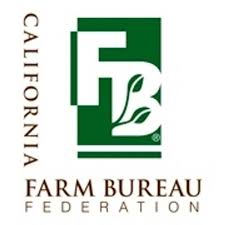October 10, 2018 - By Ching Lee - With impacts of ongoing trade disputes continuing to reverberate, California farmers and ranchers welcomed news that the U.S. has reached a deal with  its two closest trading neighbors, revising the North American Free Trade Agreement, now called the U.S.-Mexico-Canada Agreement.
its two closest trading neighbors, revising the North American Free Trade Agreement, now called the U.S.-Mexico-Canada Agreement.
Though the new agreement leaves in effect Canadian and Mexican retaliatory tariffs on farm goods imposed after the U.S. placed tariffs on steel and aluminum imports, farm groups largely praised its completion, saying the trilateral deal will bring back stability and certainty to two key export markets.
"It's a welcome development at a time when farmers have faced obstacles in selling their products to foreign customers," California Farm Bureau Federation President Jamie Johansson said.
The updated agreement maintains duty-free status for all food and agricultural products under NAFTA while expanding market access to agricultural products such as dairy, poultry, eggs and wine in Canada. It also sets standards for agricultural biotechnology, including new breeding methods and gene editing; enhances rules for science-based sanitary and phytosanitary measures; and includes provisions on geographic-indication standards in Mexico to help ensure U.S. products don't face restrictions due to mere use of common names.
For now, NAFTA remains in force until the three member countries ratify USMCA, a process that will take some time, said Sara Neagu-Reed, CFBF associate director of federal policy. President Trump has said he intends to sign the revised agreement by Nov. 30, after which legislation will need to win passage in both houses of Congress. Midterm elections in November could affect ratification prospects, analysts said.
"We will continue reviewing the USMCA text and analyzing if the revisions will ultimately offset the tariffs on our ag products that remain in place," Neagu-Reed said.
The agreement did not include an anti-dumping proposal to address concerns from growers of crops such as fresh tomatoes, asparagus and flowers, but Neagu-Reed said the administration has pledged to continue pursuing that issue.
Changes in the agreement that are particularly encouraging, she said, include those pertaining to dairy and streamlining of sanitary and phytosanitary measures.
Specifically, Canada agreed to eliminate its Class 6 and 7 price categories within six months after USMCA is implemented. Dairy groups say Canada's pricing system curtailed U.S. dairy-product exports such as milk protein concentrate, milk powder and ultra-filtered milk to Canada and facilitated dumping of surplus Canadian milk proteins on world markets at below-market prices, hurting global milk-powder markets.
"This has been a very contentious issue for both the U.S. and Canada, as the latter has a very closed market for imports, given that their supply-side management system imposes quotas on internal milk production and imports in order to maintain producer prices," said Joel Karlin, a market analyst for Western Milling in Tulare County.
Under the new agreement, U.S. dairy farmers may export up to 3.59 percent of Canada's dairy market duty-free, though Canada will retain its supply-management system, which limits imports of dairy products with tariffs of 200 to more than 300 percent after a fixed amount is reached.
Additional access to the Canadian market is certainly positive, said Annie AcMoody, director of economic analysis for Western United Dairymen, but perhaps more significant for California—the nation's leading milk-powder producer—is fixing Canada's milk-classification system.
Though the agreement with Canada is "great news," AcMoody said, the main issue remains "certainty with Mexico." California's proximity to Mexico "is really what made NAFTA so important for California dairy producers," she said, so "it will be critical" that Mexico's retaliatory tariffs for U.S. dairy exports, which remain in place, be removed. Mexico represents the top U.S. dairy export market.
With respect to wine, the new agreement resolves an ongoing dispute with Canada. The dispute centered on Canadian policies that allow only British Columbia wine to be sold on regular grocery store shelves in the province, while imported wine may be sold only through a so-called "store within a store." Canada has agreed to change its policies by Nov. 1, 2019.
The Wine Institute described the agreement as "real progress towards improved market access for U.S. wines in Canada," the No. 1 market for U.S. wine exports.
Johansson said Farm Bureau hopes the agreements with Mexico and Canada lead to further easing of trade restrictions, and urged U.S. negotiators to reach agreements as soon as possible to remove the remaining retaliatory tariffs on farm goods.
"We've seen California farmers, ranchers and agricultural marketers lose sales because of the retaliatory tariffs from Canada, Mexico and in particular from China," he said. "Until those tariffs come off, farmers won't see the full benefit of the new U.S.-Mexico-Canada agreement."
(Ching Lee is an assistant editor of Ag Alert. She may be contacted at clee@cfbf.com.)
Reprinted with permission: California Farm Bureau Federation









